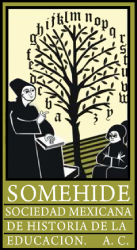Transitions from Imperialism to Autoritharianism on Dominican rural education, 1918-1946
DOI:
https://doi.org/10.29351/rmhe.v10i20.391Keywords:
Imperialism, authoritarianism, rural education, agricultural education, import substitutionAbstract
This article studies the Rudimentary School, a school modality established in the Dominican Republic by the U.S. military Occupation (1916-1924) and recovered as the main model of schooling for the peasantry by the dictatorship of Rafael L. Trujillo (1930-1961). It intends to contribute to the discussion of the ruptures and continuities between the educational policies of Trujillismo and those of the Occupation military government, as it is usually assumed that the dictator’s governmental action prolonged devices and policies implemented by the intervention forces. The analysis establishes counterpoints between the rudimentary rural schooling of both political regimes to assess continuities and ruptures, based on the analysis of the processes of implementation of the policy from sources of the National Service of Public Instruction. In essence, the study highlights the capacity of the dictatorship to operate a deep rupture from the rearticulation of the design established by the Occupation.
References
Acevedo, A., y López, P. (coords.) (2012). Ciudadanos inesperados: espacios de formación de la ciudadanía ayer y hoy. El Colegio de México/Instituto Politécnico Nacional.
Alfonseca, J. (2019). La Ocupación militar norteamericana, 1916-1924. En J. Chez Checo (coord.), Historia general del pueblo dominicano (t. IV, pp. 235-305). Academia Dominicana de la Historia.
Alfonseca, J. (2022). A Public School System. Ensayo sobre un concepto en la representación imperial norteamericana sobre la escuela popular en las Antillas, 1898-1934. En J. Alfonseca, De la Escuela aposento a la escuela “Presidente Trujillo”. Estudios sobre la historia de la escolarización rural dominicana. Editora Universitaria Bonó.
Alfonseca, J. (2011). Imperialismo, autoritarismo y modernización agrícola en las vías antillanas a la escolarización rural, 1898-1940. En A. Civera, J. Alfonseca y C. Escalante (coords.), Campesinos y escolares: la construcción de la escuela en el campo latinoamericano (siglos XIX y XX) (pp. 263-301). El Colegio Mexiquense/ Miguel Ángel Porrúa.
Alfonseca, J. (2011). Escolarización y dictadura. La escuela rural y el encuadramiento social del campesinado en la República Dominicana, 1930-1940. Boletín del Archivo General de la Nación, 73(130), 375-405.
Angulo, A. J. (2012). Empire and education. A history of greed and goodwill from the War of 1898 to the War on Terror. Palgrave Macmillan.
Consejo Nacional de Educación (1930). Ordenanza Nº 186’ 30. Revista de Educación, 2(6), 50-59.
Goldwert, M. (1962). The constabulary in the Dominican Republic and Nicaragua: Progeny and legacy of United States intervention. University of Florida Press.
Inoa, O. (1994). Estado y campesinos al inicio de la era de Trujillo. Ediciones Librería La Trinitaria.
Jiménez, R. E. (1930). Nuevo plan de estudios para la Escuela Rudimentaria rural. Revista de Educación, 2(6), 22-26.
Lane, R. (1922). Civil government in Santo Domingo in the early days of military occupation. The Marine Corps Gazette, 7(2), 127-146.
Pamphile, L. (1985). America’s policy-making in Haitian education, 1915-1934. The Journal of Negro Education, 54(1), 99-108.
San Miguel, P. (1999). La ciudadanía de Calibán: poder y discursiva campesinista en la era de Trujillo. En R. González (ed.), Política, identidad y pensamiento social en la República Dominicana (siglos XIX y XX) (pp. 269-289). Ediciones Doce Calles.
Servicio Nacional de Instrucción Pública (1918). La Escuela Rudimentaria. Reglamento, programas e instrucciones. Imp. y Linotipo J. R. Vda. García.
Tillman, E. D. (2010). Imperialism revised: Military, society, and US occupation in the Dominican Republic, 1880-1924 [Tesis de Doctorado]. University of Illinois at Urbana-Champaign.
Turits, R. L. (2003). Foundations of despotism. Peasants, the Trujillo regime and modernity in Dominican History. Stanford University Press.
Trujillo, R. L. (1932). Cartilla cívica para el pueblo dominicano. Imprenta Listín Diario.
United States Department of State (1920). Papers relating to the foreign relations of the United States with the adress of the President to Congress. Government Printing Office.
United States Senate (1921). Inquiry into the occupation and administration of Haiti and Santo Domingo. Government Printing Office.
United States Senate (1926). Convention of ratification between the United States and the Dominican Republic as contained in the Agreement of Evacuation of June 30, 1922. The American Journal of International Law, 20(2), 53-64.
Downloads
Published
How to Cite
Issue
Section
License










